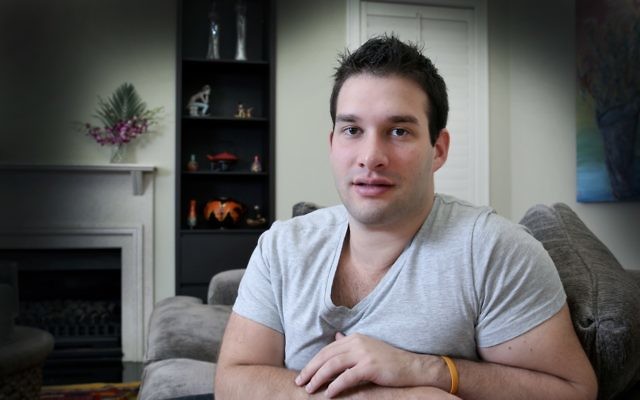Depression in the spotlight
AUTHOR Adam Schwartz was a finalist for the Australian Human Rights Commission’s Young People’s Human Rights Medal, presented as part of the commission's 2015 Human Rights Awards.
AUTHOR Adam Schwartz was a finalist for the Australian Human Rights Commission’s Young People’s Human Rights Medal, presented as part of the commission’s 2015 Human Rights Awards.
The medal is awarded to an individual under the age of 25 who has made an outstanding contribution to advancing human rights in Australia.
Selected for his work destigmatising depression and providing counsel to young people and their families, Schwartz, whose book Mum, I Wish I Was Dead details his experiences with depression, said he wants to give back hope to both sufferers and carers.
Schwartz told The AJN that although he didn’t win, “I felt really honoured to be recognised, as most people don’t see mental health as being an important issue, let alone a human right.
“Hopefully having been a finalist will continue to help raise awareness,” he said.
“I want to share insights with professionals to help them better understand who they are treating. To share the tools and lessons I’ve learned, to hopefully alleviate some of the suffering for others. Also, to help break the stigma surrounding men, their mental health, and emotions.
“I know how fortunate I am to survive something many people still suffer in silence with each day, something people lose their lives to. Because of that, I honestly couldn’t have done anything less. Whether or not it went anywhere, I had to try. I feel lucky to be able to join part of a much larger movement in mental health, that started well before me.”
Asked why there is still stigma surrounding depression, Schwartz said, “Because people simply don’t know, it is the judgment and naive comments that then make people feel ashamed of the illness.
“A lot of it comes from fear, and lack of understanding. It can’t be ‘seen’ like other illnesses, and so many don’t see it as real. Much like we all have a body and a level of physical health, we all have a mind and a level of mental health, it’s that simple.”
He said we should not be afraid to speak about mental health and illness. “We should be more afraid of what not speaking about this can potentially lead to. It can ruin relationships, destroy families, and at the final end, take lives.”
He added, “We still have a very long way to go, but we are heading in the right direction, and that’s what we need to maintain and hold onto.”
EVAN ZLATKIS


comments